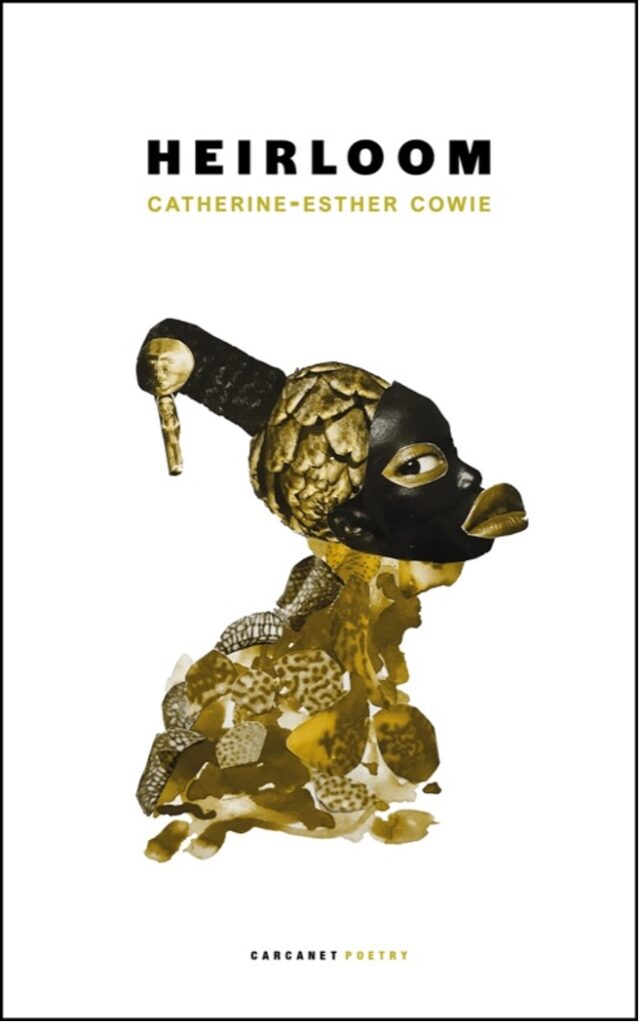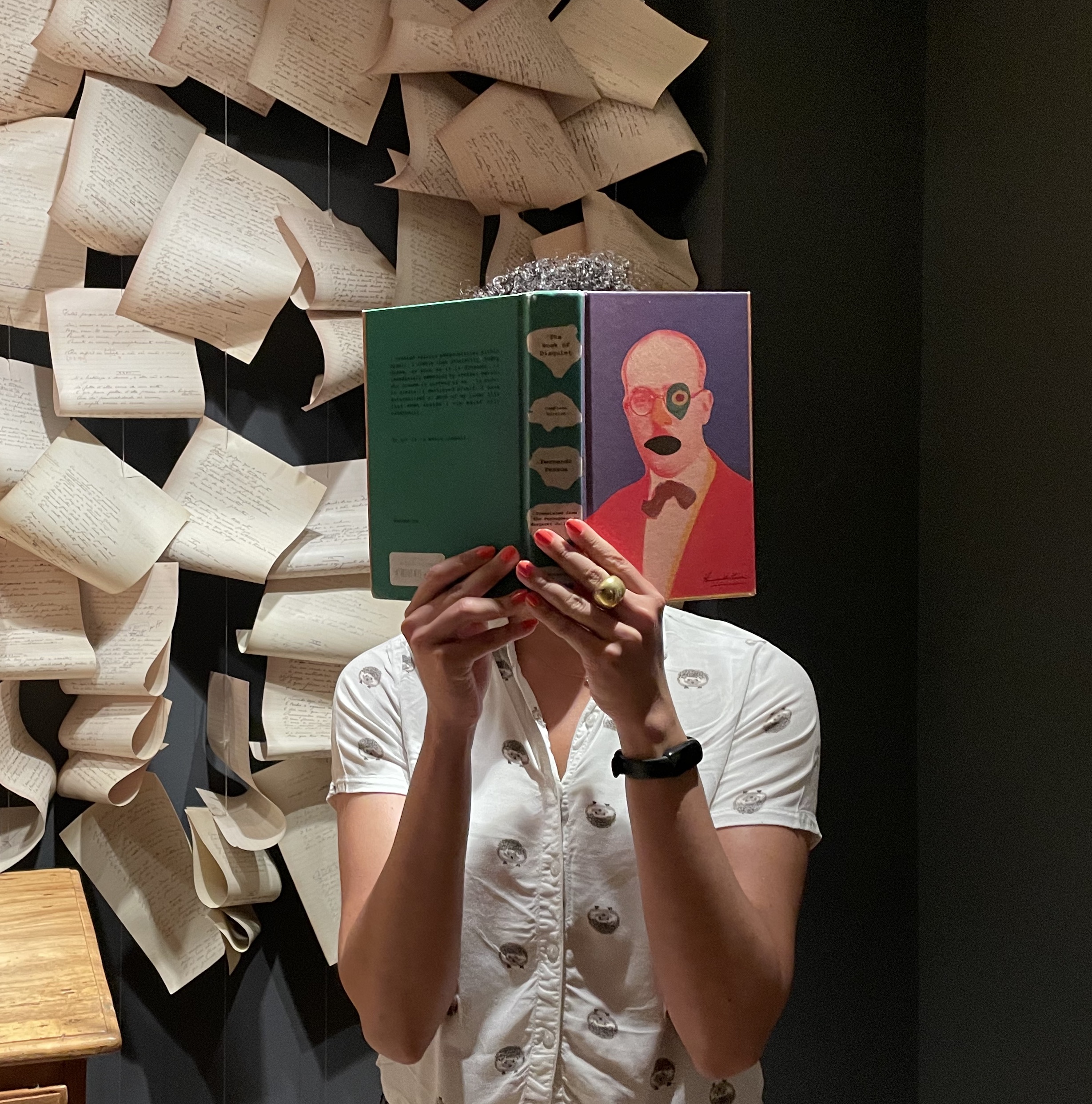Poems by CATHERINE-ESTHER COWIE
Having made both poetry and fiction contributions to TC, the multitalented Catherine-Esther Cowie returns to us this month with highlights from her debut poetry collection Heirloom, forthcoming from Carcanet Press on April 24, 2025.
Publisher’s Note
Moving from colonial to post-colonial St. Lucia, this debut collection brings to light the inheritances of four generations of women, developing monologues, lyrics, and narrative poems which enable us to see how past dysfunction, tyranny, and terror structure the shapes of women’s lives, and what they hand down to one another.
Uneasy inheritances are just the starting point for this debut’s remarkable meditations: Should the stories of the past be told? Do they bring redemption or ruin? What are the costs of saying what happened? Beguiling and cathartic, Catherine-Esther Cowie’s powerful, formally inventive poems reckon with the past even as they elegize and celebrate her subjects.
Table of Contents
- Mother: Frankenstein
- A Bedtime Prayer
- The War
- Haunting
Raise the dead. The cross-stitched
face. Her eye-less eye. My long
longings brighten, like tinsel, the three-fingered
hand. Ashen lip. To exist in fragments.
To exist at all. A comfort.
A gutting. String her up then,
figurine on the cot mobile.
And I am the restless infant transfixed.
Her full skirt, a plume of white feathers,
A Bedtime Prayer
We ate the fruit Lord,
boiled and buttered we ate.
Thought nothing of it.
It was pleasing to the eye.
Filled our mouths, our bellies.
It was the fruit of a breadfruit tree.
A tree as old as the first city.
How it grew taller than the house.
Those monstrous leaves.
Its roots echoing— cracks in the walls.
Its shadow falling through the back door, the corridor,
lengthening towards the front—
Ghost of our first father,
ghost begetting ghosts,
our lives thinned into his weakness,
his terror.
But we were fed, fed, fed.
*
Lord, you have cast us off,
left us to starve,
Sent that girl.
Girl born with a veiled face,
a caul, calling.
How did she find the axe?
She wouldn’t eat the fruit,
refused its sweetness,
weight of our father,
the first city.
Lord, she went down to the garden,
an axe flowering in her hand.
It was you Lord, the bouden blan
chirping in her ear.
What cruel instructions?
Didn’t we do your will,
kept a remembrance—
the tree,
our father,
we were hungry, Lord.
The tree fell into the house.
The War
St. Lucia, 194-
A disturbed hour, the sky loud
with the memory of assault.
But still, it’s Sunday, the trees shake
like shac-shacs in the breeze,
and the sea goes on and on
with its lullaby like it has never
given cover to the enemy.
It is Sunday,
and we go on with our lovemaking.
I refuse to hush, let my pleasure rise
against the weary tones
in the thin-walled rooms like ours,
it was yesterday, only yesterday,
another body washed ashore…
Forever and forever,
death our only guarantee.
Haven’t I died already,
years ago, on a kitchen floor,
under the weight of a different man,
my girlhood shot through,
I learnt the body as machine—
dead heart, dead pubis.
It is Sunday,
I teem with life like the flies
swarming the torpedoed ships
in the harbour.
Haunting
We frighten the children.
My hair ragged in red cloth,
I speak a language they don’t understand,
their ears tuned to English, tuned
to American cartoons.
And Leda, Gwanmanman Leda runs
cracks up the walls,
through the centre of our dinner plates.
It’s their own fault, you know,
they won’t stay in their rooms.
How she endures, endures,
Gwanmanman Leda. Leda.
Even after I married,
after she died, she endures.
Tanbou mwen.
Jab mwen.
But the children,
the children.
They stare.
Regard me strangely, sadly.
There will be no walk to the park today.
No jump rope high.
Only their rooms.
They will stay in their rooms.
Alé, alé. I chase.
They hide behind a wall. Spy.
I must clean my house like I cleaned Leda’s room.
Scrubbing. A form of memory.
A song. Trojan horse for my own blues.
Keeper of the madness.
The mad. Leda.
Mwen faché.
I was only a child,
only a child
made for play,
not the washing of soiled sheets,
of shit-stained walls,
of an old woman.
But the children,
how they stare.
Their blink-less eyes.
Pouty lips.
Why won’t they go into their rooms?
Leave me to Leda.
We are a pair.
She, because of her bad head.
Mal tèt. And I,
because I was a child.
Small. Piti.
Crushable.
Like a roach.
The mad and the little,
The mad and the little,
Give them a tickle,
Then a prickle.
Leda, stop your singing.
And I must stop this fool parade.
This arm muscling towards memory—
You’ve made it up,
Isn’t that what they said?
Mal tèt, bad head.
No one ever hit you. Mantè.
Isn’t that what they said?
But Leda, Leda,
my sweet Leda.
Mad monument.
Rogue memory.
But we must think of the children.
They cry for us, Mommy, Mommy.
Catherine-Esther Cowie was born in St. Lucia to a Trinidadian father and a St. Lucian mother. She migrated with her family to Canada and then to the USA. Her poems have been published in PN Review, Prairie Schooner, West Branch Journal, The Common, SWWIM, Rhino Poetry and others. Cowie is a Callaloo Creative Writing Workshop fellow.




